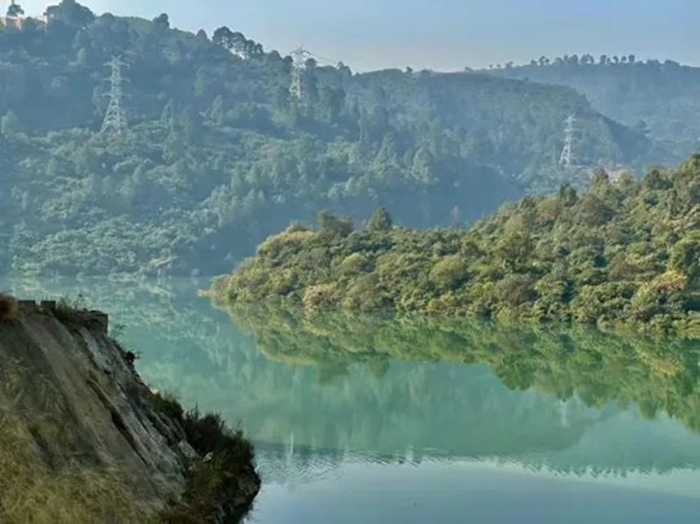from:China Three Gorges Corporationdate:2022-02-24

The leadership of both Pakistan and China are committed to a green, clean and sustainable future for their countries. Pakistan’s prime minister has termed the present decade the “Decade of Dams”, where 10 major dams are under construction. The dams includeDiamer-Bhasha Dam, Mohmand Dam, Dasu Hydropower Project, and Kyal Khwar Dam. These projects are scheduled to be completed one at a time and are complementing other hydropower projects under the framework of the China-Pakistan Economic Corridor (CPEC).
The first hydropower project under CPEC, the 720mw Karot Hydropower Project, is being developed by one of the world’s largest renewable energy companies, China Three Gorges, on Jhelum River, straddling AJK and the province of Punjab, falling in Tehsil Kahuta in Punjab and District Kotli, inAJK.
When completed, the power plant will generate 3.2 billion kilowatt-hours of electricity, meeting the power needs of 5 million people. It will also reduce 3.5 million metric tons of carbon emissions annually and save around 1.4 million tons of standard coal equivalent each year, which as a result will effectively alleviate local power shortages and spur economic growth.
For the management of environmental and social impacts associated with the development of the project, an Environmental & SocialImpact Assessment was carried out in line with the International Finance Corp(IFC) requirements as well as those of national laws and approved by the environmental protection agencies of AJK, Punjab and IFC.
To mitigate and protect the biodiversity of the project area, a comprehensive Biodiversity Management Plan (BMP) was developed for the construction and operation stages of the project in line with IFC’s performance standards and approved by the Government of Punjab and AJK for implementation. The plan addresses regional biodiversity concerns and focuses to achieve “No Net Loss” in the aquatic fauna under theInternational Finance Corp’s Performance Standard 6.
▲Karot Reservoir Area on River Jhelum
Going forward with the theme of a green and sustainable construction of CPEC. And knowing the value of biodiversity, the KarotProject developers are striving to protect two nearby national parks: AzadPattan National Park and the Murree-Kahuta-Kotli Sattian (MKKS) National Park.
These two national parks are included in the catchment area of the reservoir of the Karot Hydropower Project. Mansoor Khan, manager of the Karot Project looking after environmental aspects, said that his ambition is to work for the protection and conservation of biodiversity at Karot and its adjacent areas.
Overall, major components of the plan include protecting the project area through a Watch & Ward System; developing Sediment MiningManagement activities, and developing national Parks Management Plans through an inclusive implementation strategy that includes government departments, Karot Project, and most importantly, the local community. The international union of Conservation of Nature (IUCN) is engaged to implement the BiodiversityManagement Plan. IUCN has a presence worldwide with 50 offices and runs projects all around the world. The agency is a leader in environmental work in the country at both policy and community levels, working toward a sustainable future.
▲IUCN watchers protecting biodiversity
Hydropower projects are labor-intensive projects. During the Karot Hydropower Project’s peak construction period, there were thousands of Pakistani and Chinese workers on the project. Having thousands of employees working on-site and on a vital water source for the people of Pakistan, while ensuring that human activity does not disturb the ecology of the water, is a challenging but essential task in environmental protection. To achieve minimum ecological effect due to human activity, Karot has installed wastewater treatment equipment and hired a specialized company to collect solid waste to ensure its proper disposal.
The conservation of nature and green infrastructure development is a global development path. This path is also aligned with the green and high-quality development of the Belt and Road Initiative. Keeping in mind the expectations of the people of Pakistan, the Karot Project is pursuing its best endeavors to promote environmental and biodiversity protection at the project.
Tel:+86-25-84152563
Fax:+86-25-52146294
Email:export@hbtianrui.com
Address:Head Office: No.8 Chuangye Avenue, Economic Development Zone, Tianmen City, Hubei Province, China (Zip Code: 431700) Nanjing Office: Room 201-301, Building K10,15 Wanshou Road,Nanjing Area, China (Jiangsu) Pilot Free Trade Zone,Jiangsu Province,China (Zip Code:211899)
